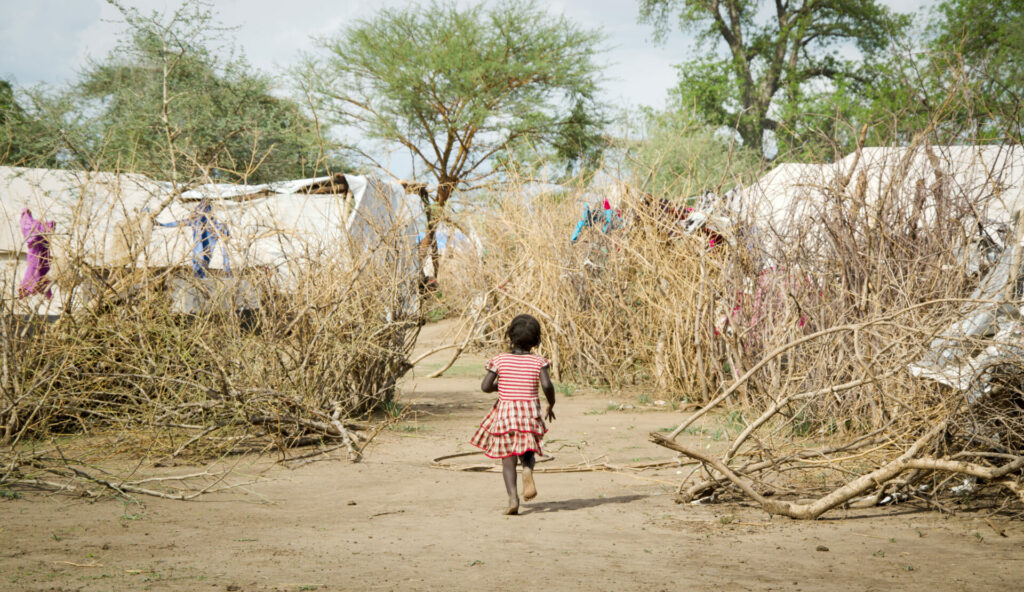The International Rescue Committee (IRC) is warning that the African continent is risking “catastrophic famine” if nothing is done to alleviate issues in food supply.
A recent report published by the charitable organisation reveals that people are already beginning to die from hunger in Ethiopia, Somalia, and Kenya. An additional 20 million Africans will go hungry by September, and 3 million risk death if nothing is done.
Food shortages have been made significantly worse by Russia’s invasion of Ukraine, which has significantly reduced deliveries of affordable grain from both countries. Much of Africa is heavily reliant on these cheap imports. In 2020, Russia exported $3,5 billion of grain to the continent, and Ukraine a further $1.5 billion. 90% of East Africa’s wheat comes from Ukraine and Russia.
In Africa, the war in Ukraine has significantly spiked the price of wheat. According to the African Development Bank, prices have increased by up to 60% and the continent will lose around $11 billion worth of food due to the conflict.
“IRC is issuing a Crisis Alert update in light of the fallout from the war in Ukraine, which- combined with the increasingly detrimental impact of climate change, conflict, and Covid-19- has driven East Africa into a predictable crisis dangerously neglected by the international community,” the IRC warns.
The role of global warming in the crisis is also clear. Significant drought and failed growing seasons in the region have only exacerbated the already fragile food situation. East Africa is currently experiencing its longest drought in decades, with its fifth consecutive rain season set to fail.
Since the beginning of the year, the number of people going hungry due to drought in Somalia nearly doubled. The number of Kenyans on the brink of famine has also tripled.
“In just one of IRC’s nutrition clinics in Mogadishu, from April to May, the IRC has seen a 265% increase in admissions for children under 5 suffering from severe malnutrition. IRC teams report that people have already started dying from starvation and the window to prevent mass deaths is rapidly closing,” the organisation states.
The risk of doing nothing in the region would be catastrophic. In the last major famine in the region in 2011, some 14 million people were affected, with 30,000 dying every month. Around 260,000 people died of starvation.
“Adjusting for population, that would be on par with 6.5 million deaths in the United States, more than 3 million children under 5 years old- the equivalent of more than six Covid-19 pandemics,” the IRC reasons.
Act now to save lives
The IRC is now calling for desperate action to help avert this humanitarian crisis. Despite a fresh round of U.S. humanitarian funding, the IRC says that the humanitarian response plan for the region is only 40% funded.
“After just over three months, the $1.9 billion appeal for the humanitarian response in Ukraine was 85% funded- a demonstration of the capacity for resource mobilisation when political will exists,” the IRC noted.
Related News
- Russia is putting world in danger of famine, EU warns
- UN announces inflation has forced over 70 million into poverty
The humanitarian group says that the international community is walking back on its pledges to prevent famines in the region. David Miliband, former British politician and President of the IRC, says that the current crisis was avoidable and a consequence of global inaction.
“There is nothing natural about famines in the 21st century,” Miliband said. “The slide into famine and mass death is man-made, driven by international inaction. The crisis was predictable and preventable…What we are witnessing is an unnatural disaster of catastrophic proportions.”
The IRC is calling for a “full scale up of the humanitarian response” in East Africa to mitigate the famine.
The organisation states that the international response must draw from experiences learned in other famines in the regions, using targeted interventions and cash assistance to help meet the needs of food-insecure people.
Greater funding, resources, and capacity is needed to address the massive humanitarian crisis.
The IRC also notes that resolving global trade challenges stemming from the war in Ukraine will be invaluable to easing food pressures in Africa.
Multilateral negotiations are currently underway to unblock Ukraine’s Black Sea ports. Large quantities of grain are stuck in silos in ports due to a Russian naval blockade. These affordable grain exports are essential for many developing economies

